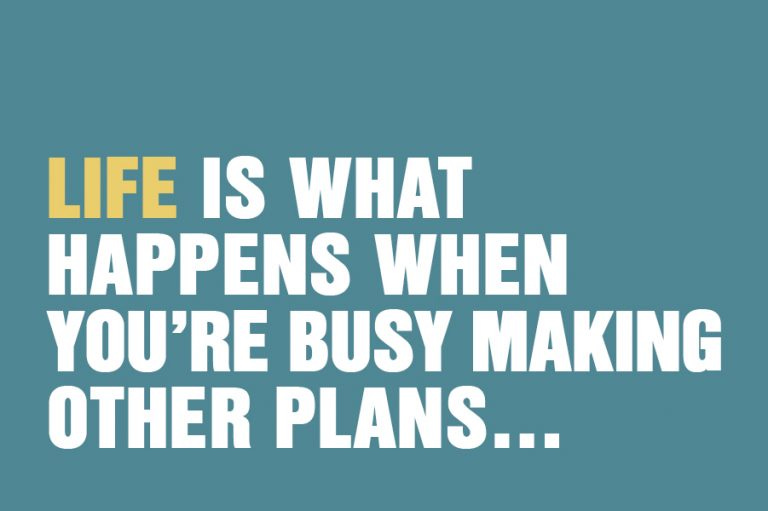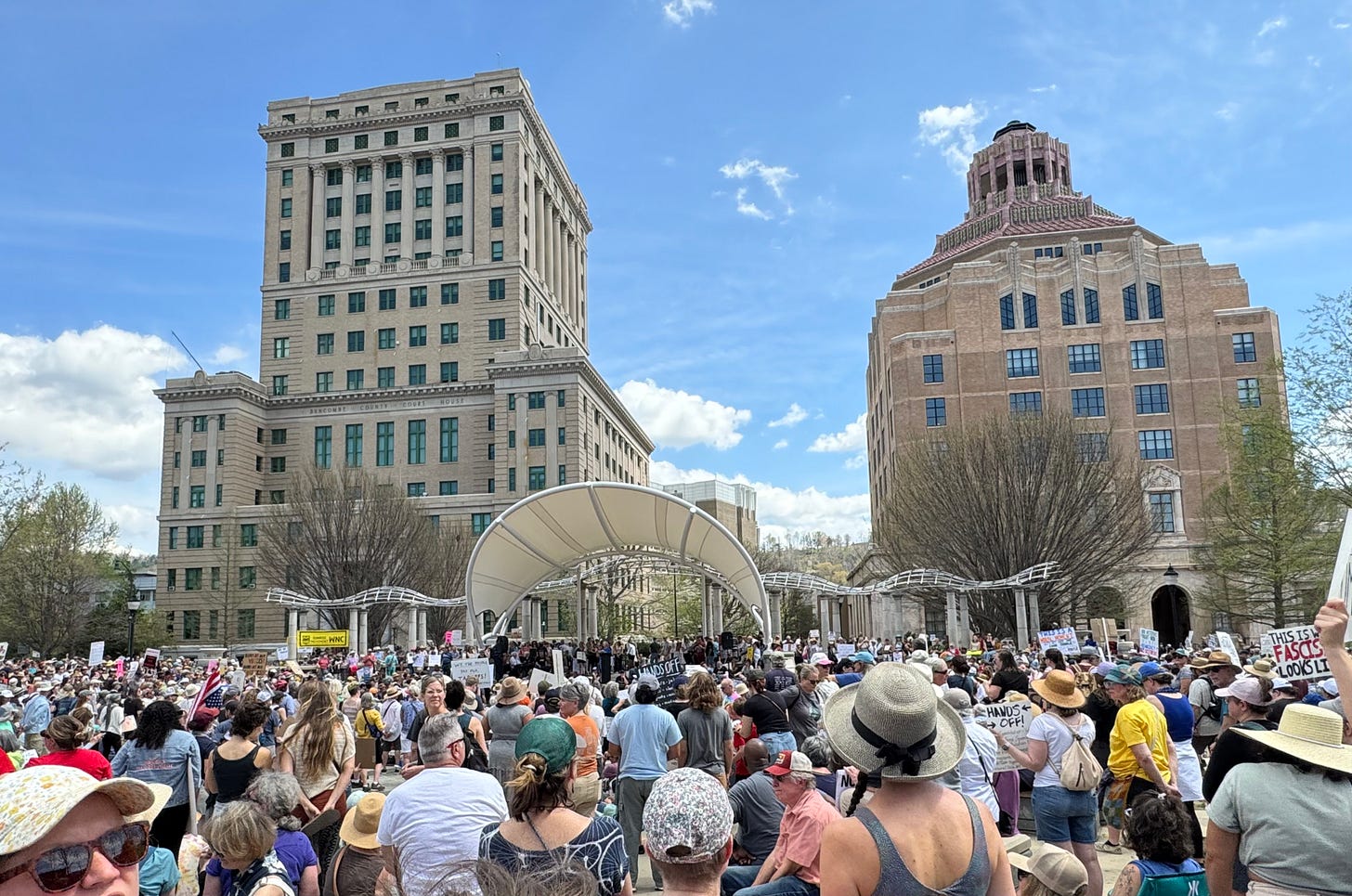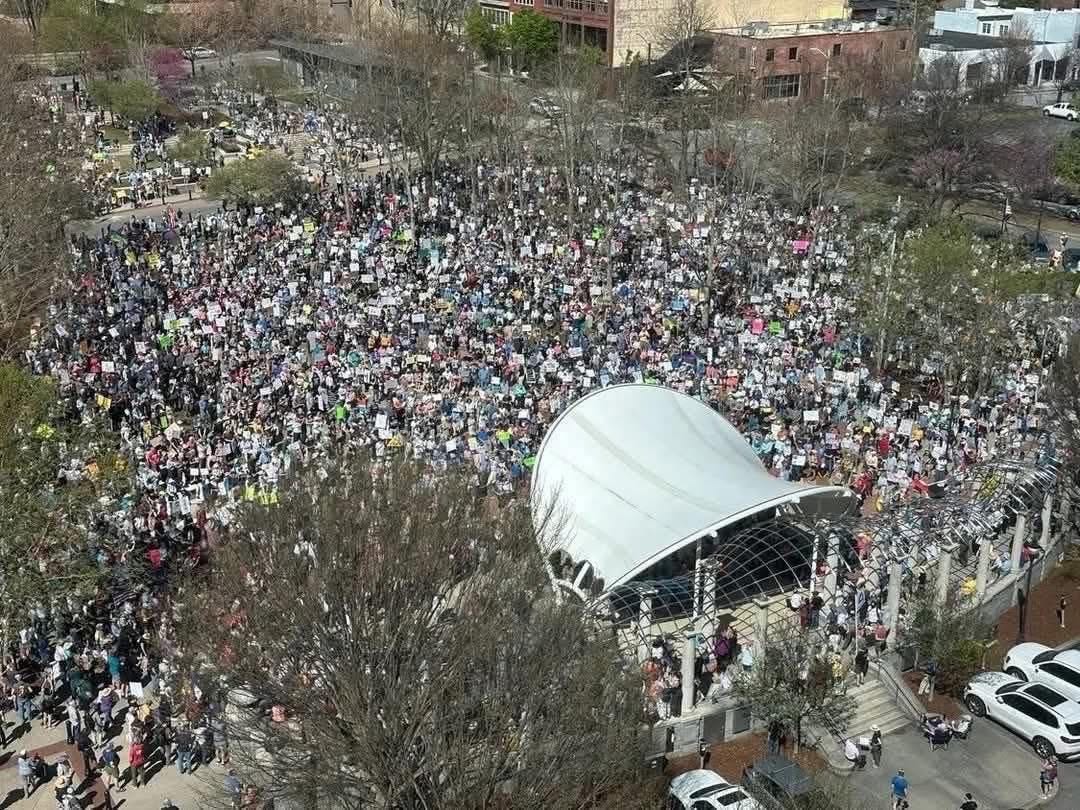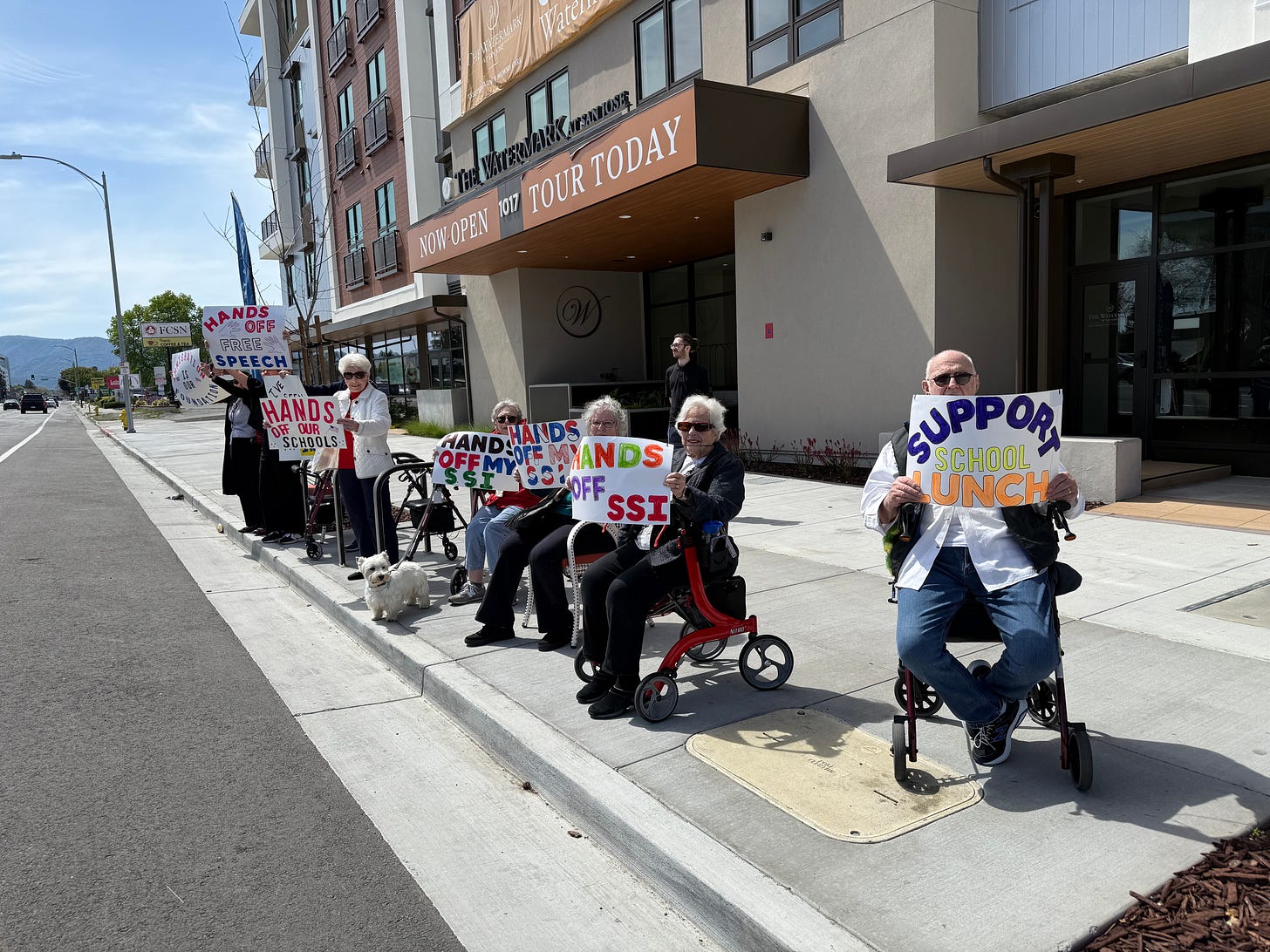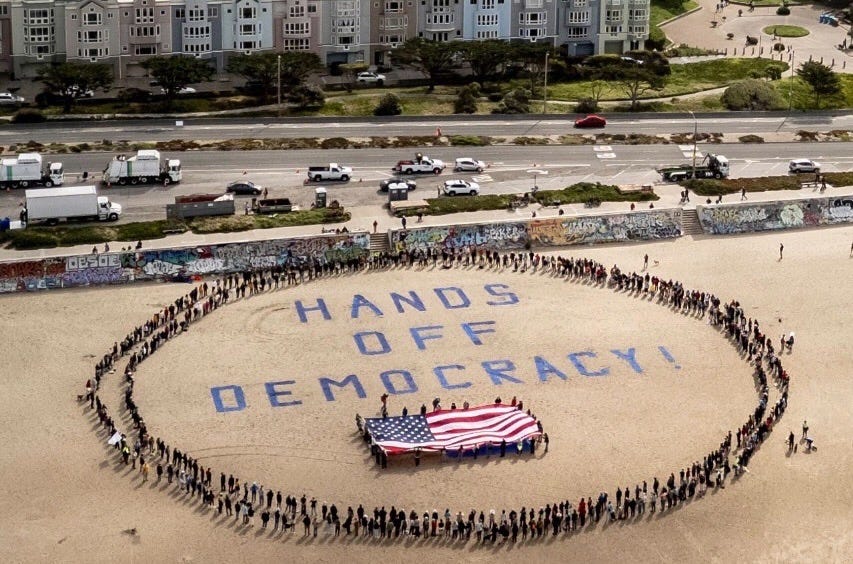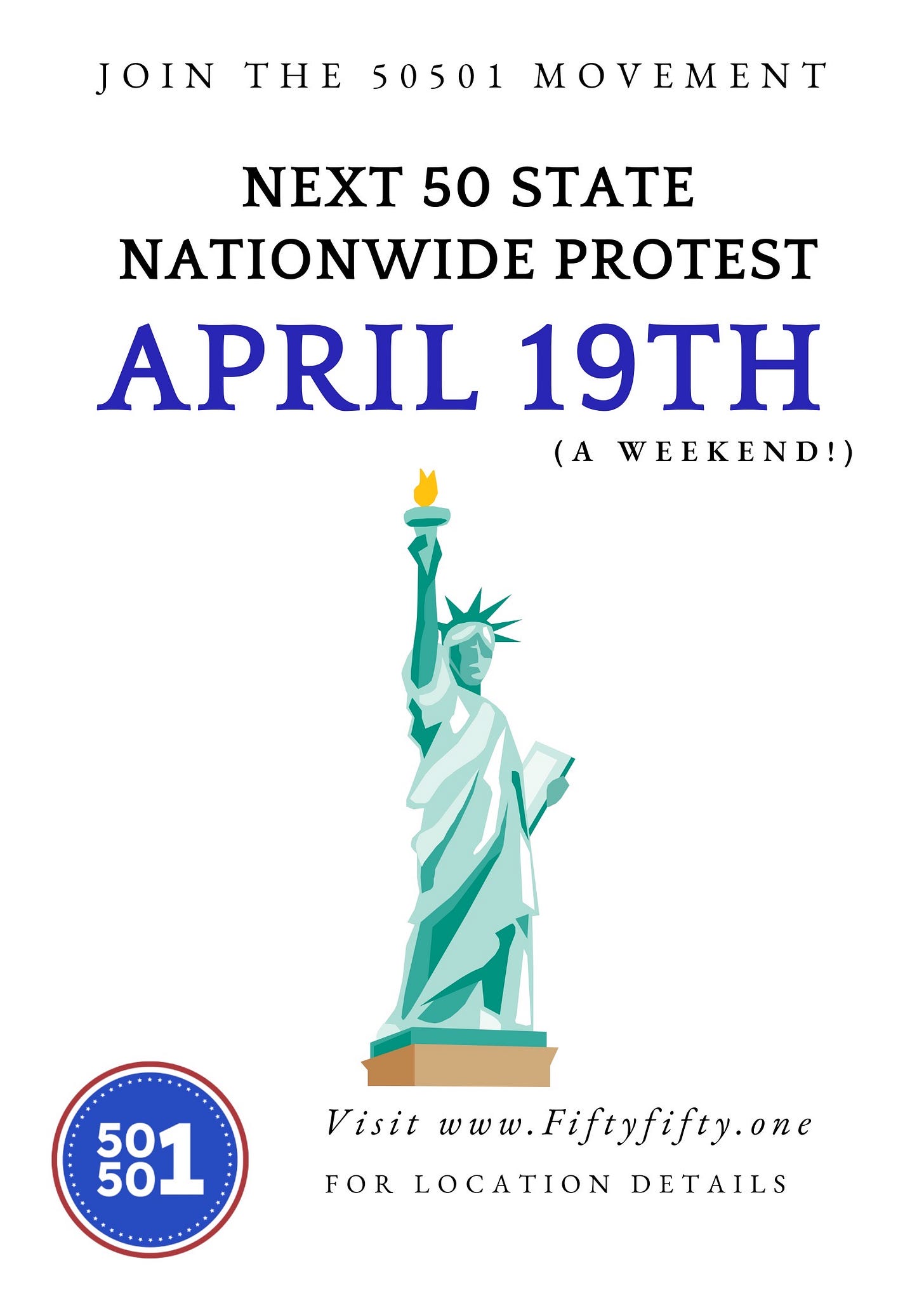I know it’s not just me because students bring it up almost every week when they call me. There’s a sizable difference between what they plan and intend to do each day (or week, month, year…) and what they end up actually doing instead. Often, something happens to foil their best-laid plans. It brings to mind the old chestnut:
In the last couple of weeks, I’ve mostly heard about this phenomenon from students in Türkiye, South Korea, and here in the US. It’s no coincidence that all three countries have been experiencing political upheaval and public protests lately.
When I refer to students not getting things done that they had planned to do, I’m not talking about laziness. If anything, it’s the opposite. Some are trying to deal with more than seems possible. And for many of these students, needing to function in English rather than their native language adds an extra layer of difficulty to some of their responsibilities. But whatever language they are using at any given time, there’s an ongoing struggle between holding to predetermined priorities and shifting those plans and priorities—at least temporarily—to meet the moment.
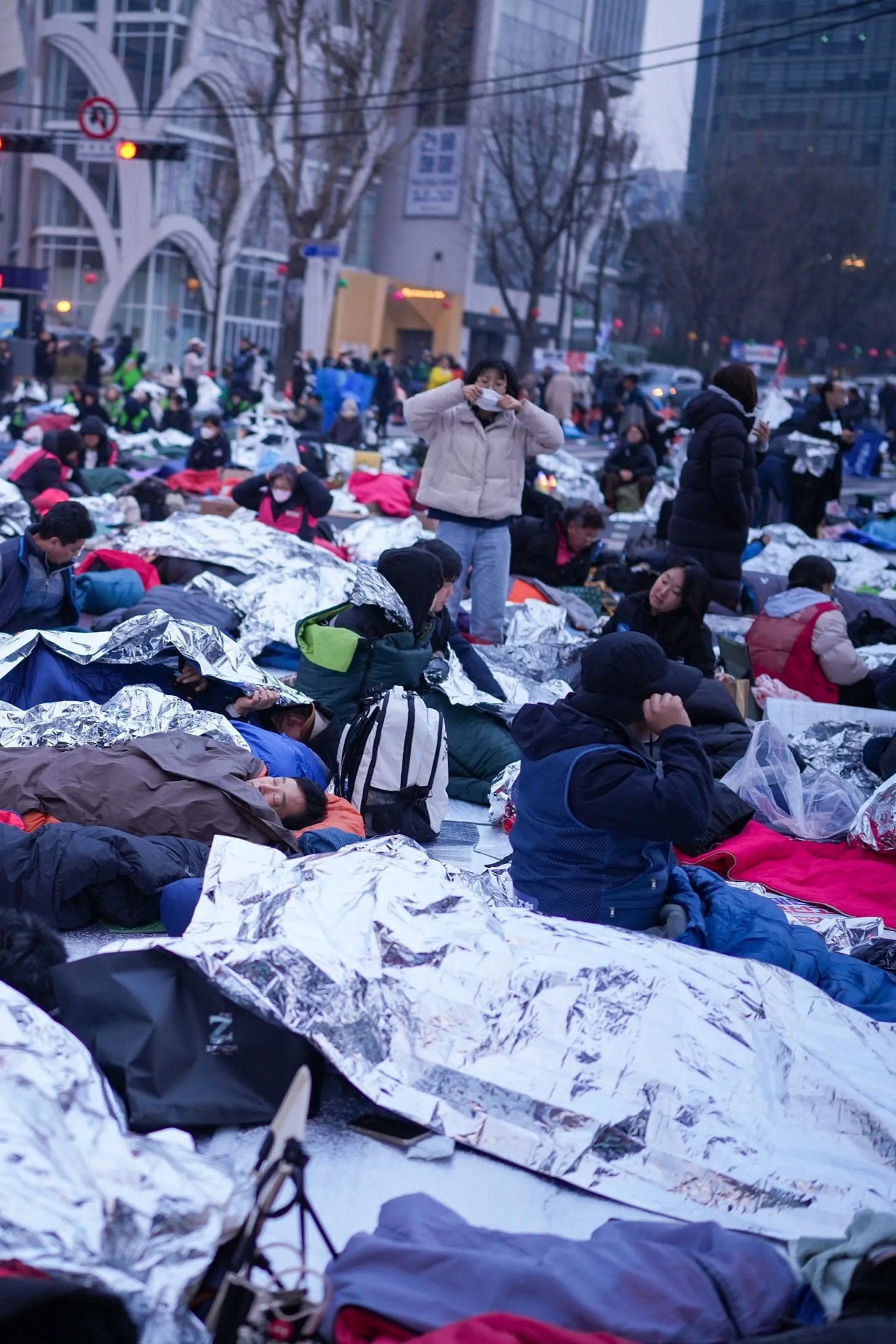
I wrote last week about the Ebb & Flow of life, and this push-pull struggle over the best use of one’s time during a crisis bears some similarity in its back-and-forth characteristics but feels less organic and more invasive than life’s inherent ups and downs. Unfortunately, just because something is man-made or wasn’t in our initial plans doesn’t mean we can ignore it—any more than we can ignore being in the path of a tidal wave.
When we face a personal crisis—loss of a job or loved one, serious illness, etc.—the choice is often clear, at least at first, because everything else pales in comparison. If, heaven forbid, your child is in a bad accident or diagnosed with a terrible disease, you drop everything and channel every resource you have into supporting that child. Likewise, in a natural disaster, your survival and that of your loved ones is your top concern. Nothing else matters until you tend to that.
But with a national or international crisis of indeterminate length and trajectory, your best course of action may be less obvious. It’s important not to put your head in the sand as you figure it out. Millions of people may be affected. Everyone needs to do their part, but it may not be immediately clear precisely what doing your part will entail.
Meanwhile, life goes on, with clothes to wash, meals to prepare, jobs and schools to attend, and significant personal matters to take care of. There’s a real temptation to just focus on things you are used to and hope someone else handles the rest… that the Texas measles outbreak settles down, the crashing stock market bounces back, and you don’t lose your decades of investment in Social Security.
The problem is that those things don’t just resolve themselves. Public pressure can make a real difference in the actions of policymakers. Politicians who are eligible for reelection usually hope to be elected again, so it’s essential that constituents let them know in large numbers when they aren’t happy about something those politicians can influence. And there are more than a few things to be concerned about in the US right now. We’d all love to live carefree lives with no need to worry about what’s happening outside our families or circles of friends, but if you are paying attention at all, there are way too many elephants in the room.
I started
over a year and a half ago to explore a tortoise-y approach to living and all that comes with that. I do try to stay informed about what’s happening in Washington, and my international English students and friends are helping me gradually become a better global citizen, as well, more sensitive to the needs and concerns of others with different backgrounds around the world. But I’ve never been interested in writing a political blog, and I’m still not.It’s the and all that comes with that part of my tortoise-y intentions above that feels more complicated now than it did when I started my Substack. The recklessness of our national “leadership” has been so extreme in its first 3 months as to potentially upend—either directly or indirectly—nearly every aspect of our future, both for individual citizens and as a country: our health and well-being, our economy, our relationships with others, our constitutional freedoms, our national security, and our very place in the world are all at serious risk.
As much as I prefer to write about music, poetry, reading & writing, nature, travel, insights and other musings and discoveries—and I intend to keep doing so because the arts and how we channel our attention are essential to dealing with crises as well as life in general—I cannot ignore the veritable HERD of elephants in the room and just pretend there’s nothing to see here.
Last Saturday, Bill and I attended the National Day of Action event at Pack Square Park in downtown Asheville, North Carolina (USA). It took some rearranging of our schedules and involved some loss of income, since Saturday is a big teaching day for both of us, but the weather was beautiful, the event was peaceful, well-planned and implemented, and it was encouraging to gather with others who share so many of our concerns about what’s happening right now, independent of any party affiliation. One overarching message was that we are not alone in our concerns for this country we love. The rally felt like an important thing to participate in, as are calls and letters to lawmakers to push for re-establishing reasonable guardrails for the rule of law and the health of our democratic republic.
We had a good turnout in Asheville. Trying to estimate crowd sizes is tricky, but the local papers said we had more than 7500 in attendance. My hometown of Atlanta, Georgia had between 20,000 and 30,000. There were massive crowds in many big cities like Boston (250K) and Washington DC (100K+), among other places—some 1400 events in all, including all 50 states.
From beaches to state capitals, from giant marches to small resident gatherings in front of retirement homes, people came out to make clear that what is happening is NOT okay, and we cannot sit idly by as our nation and all its carefully curated checks, balances, and freedoms is destroyed before our eyes.
The world is a complicated place, and there’s a lot going on right now at multiple levels. As you know, I’m a big proponent of paying careful attention, but there’s a lot of competition for our attention these days, and only you can decide where to aim it.
I’m not here to lecture anyone about what to do. Even if I knew all the answers, they would only be the answers for me. We each have to reach our own conclusions after thoughtful investigation and consideration. I do believe that learning about the thought process of others can be helpful in developing our own processes.
You may be in the situation I described earlier with a loved one in the hospital right now in serious condition, so that’s where you need to focus your attention. No question about it. Or you may have just lost a skilled government position that you’ve been devoted to for decades, like a family member of mine whose entire division was just obliterated at the CDC. Many African-Americans made strategic decisions not to participate in the protests last weekend, choosing, in some cases, to mount a different sort of resistance.
I feel strongly that it’s important to respect the choices of others in situations like these. We can better develop our own sense of empathy and understanding through open conversations and acknowledge that there are a variety of ways to support the same cause. Over time, the nature of our own participation may evolve, as well. In any case, we don’t all have the same abilities, skill sets, levels of understanding, experiences, or priorities.
Just because it’s not helpful to order people around or tell others what their activism should look like doesn’t mean that we can’t encourage one another to consider meaningful questions or ways to get more involved. Inquiring in a respectful way, you might learn that a friend would love to attend a rally but doesn’t have a ride or is afraid to go alone, and you could end up going together! Someone with mobility issues might not want to attend a march but would be happy to make some phone calls with a little guidance on how to do that.
One of the things that happens when we are deluged with more information than we can process (by design, in this case) is that we either tune out or get stuck. I had students halfway around the world who were aware of the protests and eager to ask me about them. Canada, England, Germany, and Portugal even had parallel protests in solidarity! Yet other students and friends here in the US didn’t even know about the protests until after the fact.
We can only fight so many battles at once, so you might need to choose one or two “elephants” to focus on at the start… say, Social Security and tariffs (or the Department of Education or support for Ukraine or the reckless cruelty of current US immigration policy with no due process—whatever your top priorities are at the moment). Double-check your facts to be sure you are up to speed on what’s happening in your areas of focus, then start contacting your members of Congress on a regular basis. As you get more comfortable, you can expand your scope.
Getting stuck can take many forms. One I’ve observed is letting your anger overtake your common sense to the point that you waste time fighting with internet trolls who delight in pushing your buttons and couldn’t care less about the content of your arguments. This activity may be somewhat cathartic, but it’s not likely to be productive. Consider channeling those arguments into letters to the editor of your local newspaper instead.
Maybe, like me, your struggle has more to do with how much time to devote to activism vs. how much you can devote to other projects and responsibilities. Criticism or withdrawing support from people or organizations you don’t think are doing enough is relatively easy, but I would caution against acting too impulsively in that regard, especially in complex situations. Not all efforts are plainly visible up-front.
Many liberals have chosen to boycott media outlets like the New York Times and the Washington Post in recent months, for understandable reasons. Not only are readers tired of directly contributing to the fortunes of oligarchs, but there have been numerous concerning editorial decisions at both papers, and many fine opinion writers and cartoonists have left over no longer being able to write the kinds of thoughtful opinion pieces they once did or make carefully considered endorcements in keeping with the paper’s esteemed history.
I understand this impulse to withdraw support. I considered it myself. It’s quick and easy to do, makes a statement, and saves you money (and the time you once spent reading all those articles). These two papers have done a lot of things I don’t agree with, especially recently, and the day may come that I have to cancel my subscriptions to them as well. But there has also been vitally important investigative reporting coming out of both papers in the last two months, without which we still might not know the depths of some of the destruction to our government that the current administration is engaged in.
Substack is great, but it’s not an established news organization positioned to offer the kind of deep reporting we still see from WaPo and NYT on occasion. The opinions we read in Substack and elsewhere are often grounded in this reporting, all of which is very much under attack by the Trump administration. Like NOAA, National Parks, USAID, Social Security, and a host of other important organizations that took decades to build and are now very much under threat, once lost, they cannot easily be replaced, so I’m not inclined to help kick them to the curb prematurely. We need to hang on to vital institutions as long as we can, even if they are limping a bit, especially if we have no way to replace them with something comparable.
It does mean taking care to consider individual articles and bylines when deciding which pieces to amplify or rely on, rather than just assuming that anything from the Washington Post or New York Times is reputable, but honestly we should have been doing that kind of ongoing assessment all along because no institution is perfect or 100% reliable.
I’d like to offer a couple of broad questions to ponder as you consider your role, if any, in the resistance movement and our uncertain future. Under the two broad questions, I’ll supply a few thoughts and sub-questions that I hope will be clarifying or help you dig a little deeper to uncover new (to you) approaches to your activism.
As you’ll see, these are not one-and-done questions with definitive answers but rather things I try to revisit as circumstances change. For example, although my core values remained consistent, I felt differently about some things before the election than I do now. Even some former Trump supporters are questioning such bombastic, ill-considered, and destructive acts with no regard for the consequences to the general public, at this point.
These are not the kinds of questions that an impatient drill sergeant might bark at you, expecting reflexive predetermined answers. I hope you’ll consider them in an ongoing tortoise-y and reflective way…
What might “doing my part” look like right now?
Am I as quick to offer support when people are willing to take risks and do hard things in good faith as I am to call out people I don’t think are doing enough? Gratitude and encouragement matter.
Am I doing enough? Could I reasonably do more?
Is there a group I could join that is already doing the kinds of work I’m interested in? Many hands make light work.
What gifts and skills could I offer—technology, organization, hospitality, communication, encouragement, artistry, inspiration, comfort?
Can I afford to give financial and/or practical support (rides, supplies, volunteer services…) to groups or individuals doing work that I consider especially important?
How might my creativity or artistic talents provide comfort, uplift, or inspire others who need that kind of support?
Have I been consistently engaged in at least the basics: staying informed, regularly contacting lawmakers and campaigning for new ones, as appropriate? (If not, this is a great place to start!)
What else might be worth a try?
Of the things I’ve already been doing, what might be wise to re-examine?
Have I developed any habits in my activism that aren’t serving me or the causes I believe in?
Are there things I should stop doing to direct those resources (time, money, effort…) elsewhere?
Who am I willing to work with, even if we don’t always see eye to eye?
Recognizing, as Rebecca Solnit said, “The fact that we cannot save everything does not mean we cannot save anything and everything we can save is worth saving,” what compromises am I willing to consider in order to save some things? Where do I want to focus my efforts right now?
What attitudes am I adopting and conveying when I work with others? (Enthusiasm and tenacity win over cynicism every time; likewise, flexibility over rigidity.) If at first you don’t succeed, try, try again.
I don’t claim to have mastered any of these, but they are things I’m actively working on.
I’ll close with a ⚠️ BONUS CAUTION ⚠️ for your consideration, mainly because I’ve heard it so much lately. If you find yourself making high-horse declarative statements that begin with “I REFUSE to …” you might want to take a look at what’s behind that. Fear? Defensiveness?
Boundaries are important, so I’m certainly not arguing against setting limits, but when so many things are going wrong all around us there’s a temptation to grab at anything we think might give us (the illusion of) more control. Beware of impulsively drawing rigid lines in the sand too quickly, and please don’t assume that anyone who comes to a different conclusion than you do is unprincipled or doesn’t care. In most conflict, from simple personal disagreements to world wars, the ability to be facile and adapt to changing conditions is far more valuable than a sort of reflexive adherence to fixed ideas about THE (one and only) right way to solve things.
Frankly, we’re too far into this quicksand to be able to proceed in the way most of us would prefer. Those of us who have enjoyed a fair amount of privilege in life (and may therefore be accustomed to getting our way more often than not) might need to take a page or two from the playbook of our historically oppressed and/or underserved brothers and sisters who even now are being unfairly and categorically attacked as “DEI hires” while the president packs his cabinet with the most blatantly unqualified of candidates. Sometimes, we have to work with systems, organizations, and governments that are extremely flawed because they are the best available option for the time being. To walk away, refusing to engage at all or to give it your best try, is to give up entirely, which is unacceptable.
During WWII, German anti-Nazi workers who could not take the risk of leaving their jobs found creative ways to gum up the works internally and slow progress to a crawl, buying time for outside help to arrive.
We don’t always know what others are working on. We don’t know yet what combination of things might provide meaningful resistance, reduce the size or number of elephants in the room, and somehow get us to the midterm elections in one piece so that we have a chance to at least re-establish some checks and balances. Failure is not an option, so let’s make the best decisions we can under the circumstances. If we do our utmost to strike a balance between getting the most out of life in meaningful everyday ways and tenacious civic engagement, it can have a huge impact on the quality of our lives, not just now but for generations to come.
If you missed the protests last weekend or you participated and can hardly wait for the next one, you are in luck, because there are more scheduled for April 19th! I hope to see you there…





